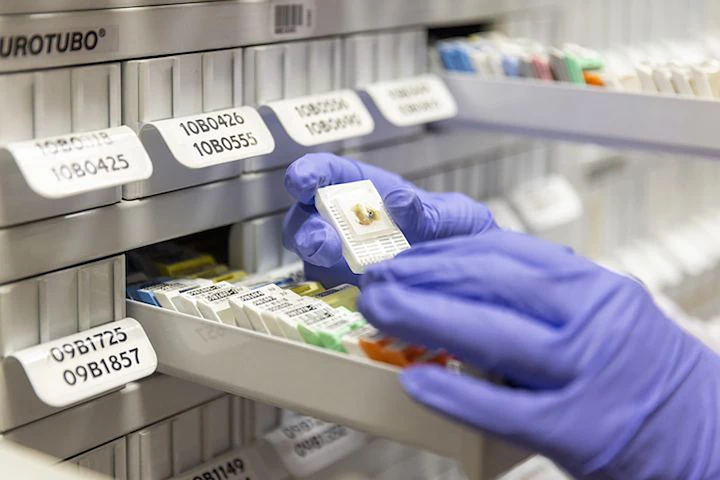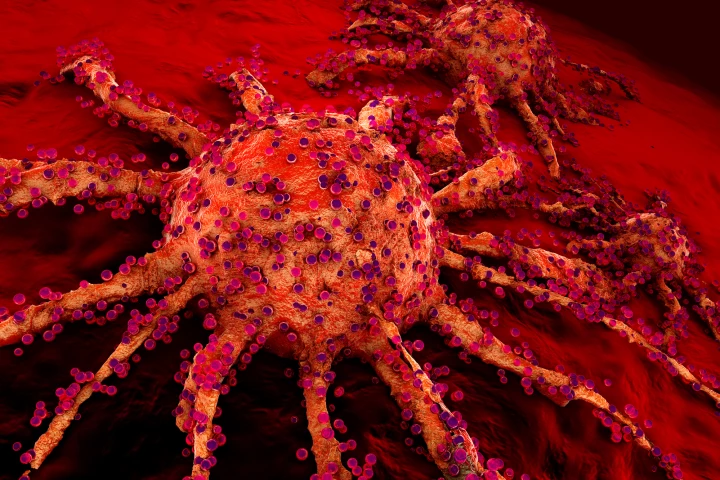Metastasis
-
One of cancer’s deadliest tricks is its ability to spread to other organs. An existing cardiac drug has now been found to reduce the risk of metastasis by dissolving circulating clusters of breast cancer cells in patients.
-
Researchers have discovered how a particular protein affects the growth and spread of colon cancer in humans. The study not only improves our understanding of why this type of cancer can be aggressive in some people, but it also highlights a potential treatment target.
-
A new study has identified one of the reasons why cancer frequently spreads from elsewhere in the body to the lungs: an amino acid called aspartate. The findings improve our understanding of cancer and open the door to new treatments for metastatic disease.
-
Being diagnosed with potentially fatal metastatic breast cancer inspired one man to gather a team of diverse professionals to create an AI-based tool to help oncologists provide an individualized treatment care plan to patients with metastatic cancer.
-
Researchers have developed an automated platform that they've used to screen thousands of drugs and identify those that can be used to interrupt the spread of melanoma. The approach could help identify promising drugs to treat metastatic cancers.
-
Researchers have identified the gene responsible for setting off a cellular chain reaction that causes prostate cancer to metastasize to the bone. The discovery could have significant implications for treating prostate and other cancers.
-
Researchers have found that a drug used to treat the symptoms of Parkinson’s disease may be effective at treating metastatic breast cancer and the brain metastases that can often result. The repurposed drug could be a novel cancer treatment.
-
Researchers have created the world’s first biobank of living tissue collected from patients with metastatic brain cancer, providing a means of research and drug testing, with the data collected available to the international scientific community.
-
Researchers have uncovered a protein that facilitates the spread of breast cancer cells into healthy tissue. The discovery improves our understanding of the metastatic process and is the first step to developing treatments that target this mechanism.
-
Researchers have found that antioxidants like vitamins C and E trigger a mechanism that stimulates the growth of new blood vessels in cancer tumors, helping them to grow and spread. They say it highlights the risk of taking unnecessary supplements.
-
Metastatic cancer accounts for up to 90% of all cancer deaths in the US annually. Now, researchers have trialed a first-of-its-kind monoclonal antibody drug that inhibits the process by which cancer cells spread, and results are promising.
-
Most people with breast cancer die not from the primary tumor but from metastasis, when the cancer spreads. Researchers have developed a compound that blocks the actions of a metastasis-causing protein, potentially reducing the spread of breast cancer.
Load More











